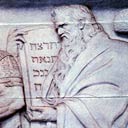In 1926 the League of Nations recognized a new medical body, the International Board of Hygiene. It’s a good thing they didn’t assign it any responsibilities: The “board” was really a group of drinking buddies who met in a turf bar in Tijuana during Prohibition. San Diego pathologist Rawson Pickard invented a surgeon, “Honorable J. Fortescue,” as a founder, and anyone who attended a meeting became a lifetime member.
Pickard probably imagined his joke would be exposed pretty quickly, but the other shoe never dropped. In response to his letter, the League of Nations recognized the board in a couple of weeks. Soon the nonexistent Fortescue was invited to join the American Conference on Hospital Service, and the U.S. National Research Council included him in a directory of child psychologists. Pickard began to write articles under his byline and answered journalists’ inquiries on his behalf.
The joke kept snowballing. By 1936 Fortescue was listed in Who’s Who in San Diego, including his publications, association memberships, medical studies and travels. He lived in Paris, ostensibly, but his address was given as “The International Board of Hygiene, 1908 Eutaw Place, Baltimore, Maryland.”
That’s it. For years membership of the International Board of Hygiene spread by invitation, but no one ever caught on. Pickard died in 1963, taking Fortescue with him.
Someone ought to check the rest of our luminaries. Do they all exist?




